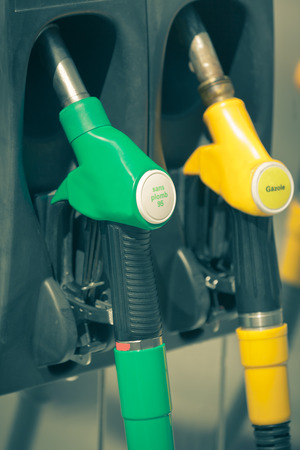1. Understanding Gasoline Grades in the U.S.
When you pull up to a gas station in America, you’ll notice different fuel options labeled as “regular,” “mid-grade,” and “premium.” But what do these labels actually mean, and how do they affect your car’s performance? Let’s break it down so you can make the best choice for your vehicle.
What Is Octane Rating?
The main difference between regular and premium gasoline is the octane rating. This number measures a fuel’s ability to resist engine knocking or pinging during combustion. Engine knock happens when fuel burns unevenly, which can hurt your engine over time.
| Gasoline Type | Common Octane Rating | Typical Label at Pump |
|---|---|---|
| Regular | 87 | Unleaded or Regular |
| Mid-Grade | 89-90 | Plus or Mid-Grade |
| Premium | 91-93 | Premium or Super |
Why Does Octane Matter?
The higher the octane number, the more resistant the fuel is to knocking. Some engines—especially performance or luxury models—are designed to run on premium gas because they have higher compression ratios or turbochargers that demand a more stable fuel. Using the right octane helps these engines deliver better power and efficiency.
How Are Octane Ratings Determined?
In the United States, gas stations display the average of two testing methods: Research Octane Number (RON) and Motor Octane Number (MON). This is shown as (R+M)/2 on the pump, ensuring drivers know exactly what they’re getting.
A Quick Look at Gasoline Grades for American Drivers
- Regular (87): Recommended for most cars on the road today. It’s affordable and gets the job done for standard engines.
- Mid-Grade (89-90): Sometimes suggested for certain vehicles but less common as a requirement.
- Premium (91-93): Needed for high-performance cars, some sports cars, and many luxury vehicles. Always check your owner’s manual!
Choosing the right fuel isn’t just about spending more money—it’s about giving your car what it needs to run smoothly and efficiently. Next time you fill up, pay attention to those numbers at the pump—they matter more than you might think!
2. How Fuel Choice Impacts Engine Performance
The Science Behind Premium and Regular Gasoline
When you pull up to the pump, you might wonder if choosing premium gasoline is really worth it for your car. The main difference between premium and regular gas comes down to their octane ratings. Octane rating measures a fuel’s ability to resist “knocking” or “pinging” during combustion. Knocking happens when fuel burns unevenly in your engine’s cylinders, which can affect performance and even cause damage over time.
Octane Ratings Explained
Most regular gasoline sold in the U.S. has an octane rating of 87, while premium gas usually ranges from 91 to 93. Here’s how they compare:
| Type of Gasoline | Typical Octane Rating | Main Benefit |
|---|---|---|
| Regular | 87 | Sufficient for most engines; affordable |
| Premium | 91-93 | Prevents knocking in high-performance engines |
How Does Octane Affect Engine Knock?
If your car’s engine is designed for high compression (common in sports cars and some luxury vehicles), using regular gas can lead to knocking. This is because lower-octane fuel may ignite too early under high pressure. Premium fuel, with its higher octane rating, resists premature ignition and helps these engines run smoothly. For most everyday vehicles, however, regular gas works just fine and won’t cause knock because their engines are built for lower compression ratios.
Impact on Fuel Efficiency and Performance
You might hear claims that premium gas improves fuel economy or horsepower for any car, but this isn’t always true. Here’s a quick breakdown:
| Fuel Type | Effect on Standard Engines | Effect on High-Performance Engines |
|---|---|---|
| Regular Gasoline | No loss of efficiency or power; safe for most vehicles | May cause knocking and reduced performance |
| Premium Gasoline | No significant benefit for standard engines; higher cost | Smoother operation, prevents knock, maintains peak performance |
The Bottom Line on Fuel Choice and Engine Health
Your vehicle’s owner manual will tell you what kind of gas your engine needs. Using premium when your car doesn’t require it generally won’t boost performance or efficiency—it’ll just cost more at the pump. But if your car calls for premium, sticking with it keeps your engine running its best and avoids potential damage from knocking.
![]()
3. When Should You Use Premium Gas?
If you’re trying to figure out whether premium gas is right for your car, you’re not alone. With so many options at the pump, it can be confusing to know which fuel will give you the best performance without wasting money. Let’s break down when using premium gasoline really makes a difference and when it’s just an extra expense.
Manufacturer Recommendations Matter
The first place to look is your car’s owner’s manual. Car manufacturers do a lot of testing to decide what kind of fuel works best for each engine. If the manual says “premium required,” you should definitely use premium gas to keep your engine running smoothly and avoid possible damage. But if it only says “premium recommended,” that means your car can run on regular gas, but might perform better with premium.
What Do These Labels Mean?
| Label in Manual | What It Means | Recommended Fuel |
|---|---|---|
| Premium Required | You must use premium to avoid engine problems | Premium (91+ octane) |
| Premium Recommended | Regular is okay, but premium may boost performance or efficiency | Regular or Premium |
| No Mention/Regular Unleaded Only | Your car is designed for regular fuel only | Regular (87 octane) |
High-Performance Engines Need Higher Octane
Certain cars are built for power. High-performance engines, like those found in sports cars or luxury vehicles, often need premium gas because they operate at higher compression ratios. This means they generate more pressure inside the cylinders, and higher-octane fuel helps prevent knocking or pinging—a problem where the fuel burns unevenly and can damage your engine over time.
Types of Cars That Usually Need Premium Gas:
- Sports cars (like Chevrolet Corvette, Ford Mustang GT)
- Luxury brands (such as BMW M-series, Mercedes-AMG models)
- Certain turbocharged or supercharged engines (common in high-end SUVs and sedans)
When Does Premium Fuel Offer Real Benefits?
You’ll see the biggest benefits from premium gas if:
- Your engine requires it for proper operation.
- You drive a high-performance vehicle and want maximum horsepower and acceleration.
- You tow heavy loads or drive in extreme conditions, where the extra protection against knocking can help.
- Your car’s computer system can take advantage of higher-octane fuel by adjusting performance settings.
If your vehicle was designed for regular gas and doesn’t have a high-compression engine, filling up with premium probably won’t improve performance or gas mileage. For most everyday drivers, sticking with the manufacturer’s recommendation is the smartest—and most cost-effective—choice.
4. Are There Real Savings with Regular Gasoline?
Breaking Down the Cost Differences at the Pump
When you pull up to a gas station in the U.S., you’ll usually see three types of gasoline: regular, mid-grade, and premium. The biggest difference most drivers notice is the price per gallon. Here’s a quick comparison:
| Type of Gasoline | Average Price per Gallon* |
|---|---|
| Regular (87 Octane) | $3.50 |
| Mid-Grade (89 Octane) | $3.80 |
| Premium (91-93 Octane) | $4.10 |
*Prices can vary by location and season.
If you fill up a 15-gallon tank, using regular instead of premium could save you roughly $9 per fill-up. Over a year, that adds up for many American families.
Potential Long-Term Engine Effects
The big question is whether those savings come at a cost to your engine’s health or performance. Most modern cars in the U.S. are engineered to run efficiently on regular gasoline unless the manufacturer specifically recommends premium. Using regular in a car designed for it typically causes no harm. However, if your car’s owner’s manual says “premium required,” using regular could lead to knocking, reduced power, or even long-term engine issues.
What About Performance?
If your vehicle only “recommends” premium but doesn’t require it, you might not notice much difference day-to-day when using regular gas—especially in normal driving conditions. High-performance engines may see a slight dip in horsepower or fuel economy, but for most daily commutes and errands, these changes are minor.
Quick Guide: Should You Use Regular or Premium?
| Your Car Says… | You Can Use… | Risks/Savings |
|---|---|---|
| Premium Required | Premium Only | No risk of engine damage; higher fuel cost |
| Premium Recommended | Regular or Premium | Saves money; minor performance loss possible |
| Regular Unleaded Only | Regular Only | No risk; best savings at the pump |
Can Regular Gas Save You Money Without Compromising Performance?
If your car is built for regular unleaded gasoline, absolutely! You’ll pocket real savings every time you fill up, and your engine will perform just as well as it should. For vehicles that only recommend premium, switching to regular can still mean significant savings with minimal impact for everyday driving. Always check your owner’s manual before making the switch to be sure you’re not risking your engine’s health or warranty.
5. Myths and Misconceptions about Fuel Choices
Separating Fact from Fiction in the Gasoline Debate
When it comes to choosing between premium and regular gasoline, a lot of advice gets thrown around—especially at the gas station or on car forums. Let’s break down some of the most common myths and misconceptions so you can make a smart choice for your car, wallet, and performance.
Common Myths About Premium vs. Regular Gasoline
| Myth | The Truth |
|---|---|
| Premium gas always improves performance. | Unless your car specifically requires premium, you probably won’t see extra horsepower or better acceleration by filling up with higher-octane fuel. |
| Using regular gas in a premium-only vehicle will ruin your engine. | If your owner’s manual says “required,” stick with premium. But many cars just “recommend” premium—you can use regular with minimal impact, though there may be slight loss of efficiency or power. |
| Premium fuel cleans your engine better. | Both regular and premium fuels in the U.S. contain cleaning additives as required by law, so premium isn’t necessarily cleaner. |
| Bigger price tag means better fuel for all cars. | The only reason to pay extra for premium is if your manufacturer calls for it due to high-compression engines or turbocharging. |
| You’ll get more miles per gallon with premium gas. | This is usually not true unless your engine is designed for higher octane. Most drivers won’t notice a difference in MPG. |
Popular Opinions in American Car Culture and Media
A lot of TV commercials and online influencers hype up the benefits of premium gas, making it sound like a magic potion for any car. In reality, American automakers design most vehicles to run perfectly fine on regular unleaded. Premium is mostly needed for certain luxury, sports, or turbocharged models that have specific high-performance needs.
Key Takeaway:
If you’re driving a typical sedan, truck, or SUV without special requirements in the owner’s manual, you’re not missing out by choosing regular gasoline. Save the extra money for your next road trip snack—or maybe a car wash!


